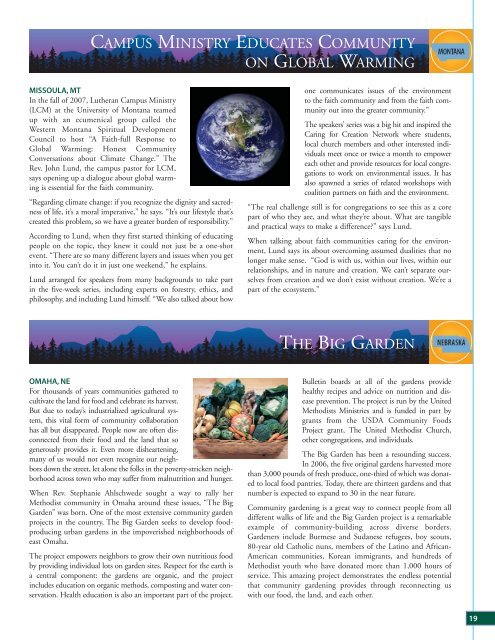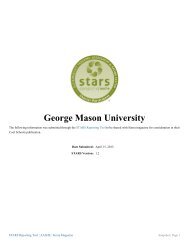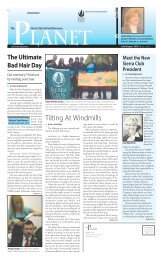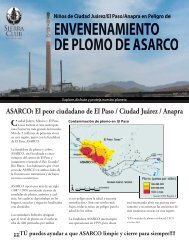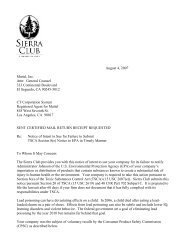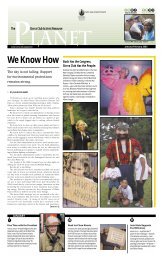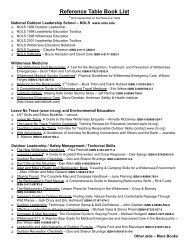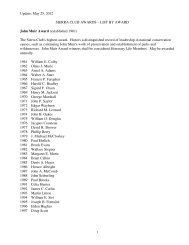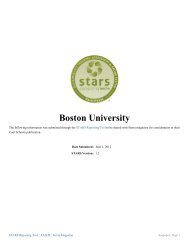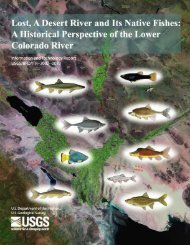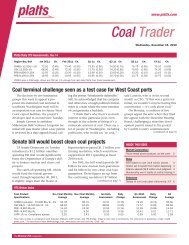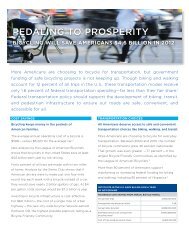FAITH IN ACTION - Sierra Club
FAITH IN ACTION - Sierra Club
FAITH IN ACTION - Sierra Club
Create successful ePaper yourself
Turn your PDF publications into a flip-book with our unique Google optimized e-Paper software.
CAMPUS M<strong>IN</strong>ISTRY EDUCATES COMMUNITY<br />
ON GLOBAL WARM<strong>IN</strong>G<br />
MISSOULA, MT<br />
In the fall of 2007, Lutheran Campus Ministry<br />
(LCM) at the University of Montana teamed<br />
up with an ecumenical group called the<br />
Western Montana Spiritual Development<br />
Council to host “A Faith-full Response to<br />
Global Warming: Honest Community<br />
Conversations about Climate Change.” The<br />
Rev. John Lund, the campus pastor for LCM,<br />
says opening up a dialogue about global warming<br />
is essential for the faith community.<br />
“Regarding climate change: if you recognize the dignity and sacredness<br />
of life, it’s a moral imperative,” he says. “It’s our lifestyle that’s<br />
created this problem, so we have a greater burden of responsibility.”<br />
According to Lund, when they first started thinking of educating<br />
people on the topic, they knew it could not just be a one-shot<br />
event. “There are so many different layers and issues when you get<br />
into it. You can’t do it in just one weekend,” he explains.<br />
Lund arranged for speakers from many backgrounds to take part<br />
in the five-week series, including experts on forestry, ethics, and<br />
philosophy, and including Lund himself. “We also talked about how<br />
OMAHA, NE<br />
For thousands of years communities gathered to<br />
cultivate the land for food and celebrate its harvest.<br />
But due to today’s industrialized agricultural system,<br />
this vital form of community collaboration<br />
has all but disappeared. People now are often disconnected<br />
from their food and the land that so<br />
generously provides it. Even more disheartening,<br />
many of us would not even recognize our neighbors<br />
down the street, let alone the folks in the poverty-stricken neighborhood<br />
across town who may suffer from malnutrition and hunger.<br />
When Rev. Stephanie Ahlschwede sought a way to rally her<br />
Methodist community in Omaha around these issues, “The Big<br />
Garden” was born. One of the most extensive community garden<br />
projects in the country, The Big Garden seeks to develop foodproducing<br />
urban gardens in the impoverished neighborhoods of<br />
east Omaha.<br />
The project empowers neighbors to grow their own nutritious food<br />
by providing individual lots on garden sites. Respect for the earth is<br />
a central component: the gardens are organic, and the project<br />
includes education on organic methods, composting and water conservation.<br />
Health education is also an important part of the project.<br />
one communicates issues of the environment<br />
to the faith community and from the faith community<br />
out into the greater community.”<br />
The speakers’ series was a big hit and inspired the<br />
Caring for Creation Network where students,<br />
local church members and other interested individuals<br />
meet once or twice a month to empower<br />
each other and provide resources for local congregations<br />
to work on environmental issues. It has<br />
also spawned a series of related workshops with<br />
coalition partners on faith and the environment.<br />
“The real challenge still is for congregations to see this as a core<br />
part of who they are, and what they’re about. What are tangible<br />
and practical ways to make a difference?” says Lund.<br />
When talking about faith communities caring for the environment,<br />
Lund says its about overcoming assumed dualities that no<br />
longer make sense. “God is with us, within our lives, within our<br />
relationships, and in nature and creation. We can’t separate ourselves<br />
from creation and we don’t exist without creation. We’re a<br />
part of the ecosystem.”<br />
THE BIG GARDEN<br />
Bulletin boards at all of the gardens provide<br />
healthy recipes and advice on nutrition and disease<br />
prevention. The project is run by the United<br />
Methodists Ministries and is funded in part by<br />
grants from the USDA Community Foods<br />
Project grant, The United Methodist Church,<br />
other congregations, and individuals.<br />
The Big Garden has been a resounding success.<br />
In 2006, the five original gardens harvested more<br />
than 3,000 pounds of fresh produce, one-third of which was donated<br />
to local food pantries. Today, there are thirteen gardens and that<br />
number is expected to expand to 30 in the near future.<br />
Community gardening is a great way to connect people from all<br />
different walks of life and the Big Garden project is a remarkable<br />
example of community-building across diverse borders.<br />
Gardeners include Burmese and Sudanese refugees, boy scouts,<br />
80-year old Catholic nuns, members of the Latino and African-<br />
American communities, Korean immigrants, and hundreds of<br />
Methodist youth who have donated more than 1,000 hours of<br />
service. This amazing project demonstrates the endless potential<br />
that community gardening provides through reconnecting us<br />
with our food, the land, and each other.<br />
19


